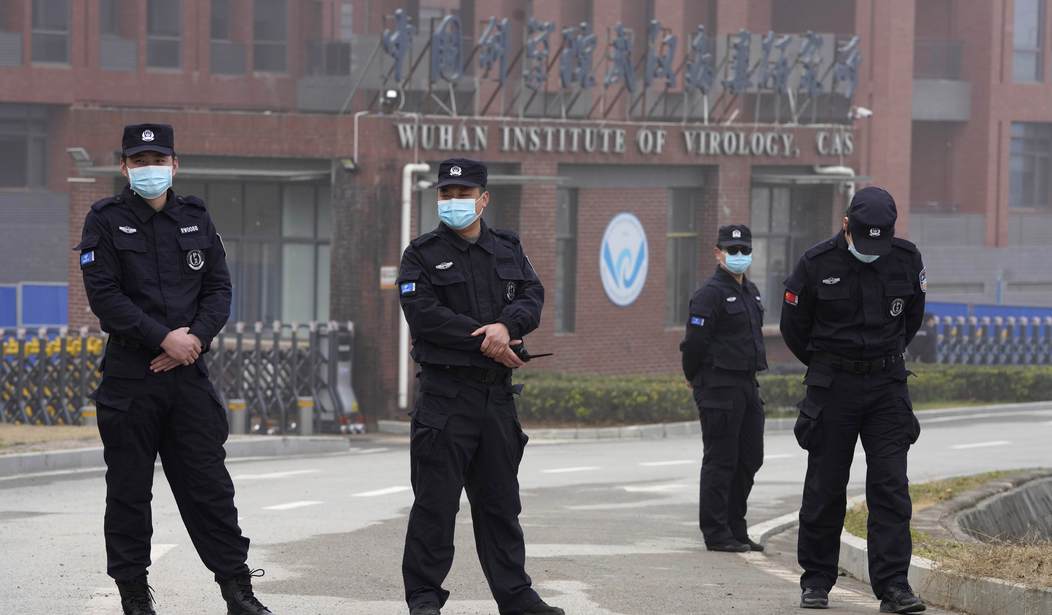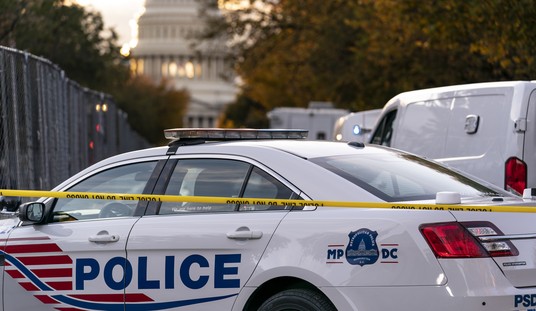As evidence mounts and even former naysayers begin to take more seriously the possibility (probability) that COVID-19 was intentionally created a the Wuhan Institute of Virology, the World Health Organization has announced it has created a new naming system for “the most troubling” COVID “variants of concern,” as well as the second-level “variants of interest” — to “avoid stigmatizing nations where they were first detected.”
What’s in a name? WHO revising naming system for COVID variants to avoid stigmatizing nations where they were first spotted https://t.co/XLCr0zFD7w
— CBS News (@CBSNews) June 1, 2021
The WHO announced on Monday, as reported by CBS News, COVID variants will now be designated by letters of the Greek alphabet.
“They will not replace existing scientific names,” said Maria Van Kerkhove, the WHO’s COVID-19 technical lead, “but are aimed to help in public discussion.”
OK, stop the tape. A couple of glaring questions beg to be asked.
First, is it purely a coincidence that as Wuhan-origin evidence has continued to mount, the WHO — totally unrelated — decided to help “public discussion” focus more accurately on coronavirus variants, or is this a barely-veiled attempt to turn attention away from China?
Second, do WHO officials truly believe “public discussion” correctly focused on China and Wuhan will capitulate and begin referring to the Wuhan virus as a letter of the Greek alphabet?
(Correct answers: “b,” and “LOL if so.”)
Here are several examples, as noted by CBS.
Under the new system, the variants of concern take on the following names: the previously so-called British variant B.1.1.7 becomes Alpha; the B.1.351 first discovered in South Africa becomes Beta, while the Brazilian P.1 becomes Gamma.
The so-called Indian variant B.1.617 is split into sub-lineages, of which the B.1.617.2 variant of concern becomes Delta.
The B.1.617.1 variant of interest is called Kappa.
Besides those names, there are two other scientific names in use for each mutation, while different geographic names have been used to describe the same variant.
For example, within Britain, what other countries have been referring to as the British variant is often called the Kent variant — the county in southeast England where it was first discovered.
The lineage names such as B.1.1.7.2 will still be used in scientific circles, for the mutation information that their names convey.
Eyes glazed over? Mine, too.
And the WHO knows it, as it suggested in its statement:
While they have their advantages, these scientific names can be difficult to say and recall, and are prone to misreporting.
As a result, people often resort to calling variants by the places where they are detected, which is stigmatizing and discriminatory.
To avoid this and to simplify public communications, WHO encourages national authorities, media outlets and others to adopt these new labels.
No, history is not replete with hundreds of diseases, plagues, viruses, etc. with names based on relevant locations of occurrence because “scientific names can be difficult to say and recall”; they were named for areas based on points of reference and common sense.
Oh, and not for “racist” purposes of “stigmatization,” my lefty friends.
Bottom line? Mike Pompeo said it best on Tuesday morning.
“Every piece of evidence suggests the Wuhan virus leaked from the Wuhan Institute of Virology.
“Communist China owes the world answers.”
BINGO.
Every piece of evidence suggests the Wuhan virus leaked from the Wuhan Institute of Virology.
Communist China owes the world answers.
— Mike Pompeo (@mikepompeo) June 1, 2021
Related recent RedState articles:
NYT Reporter’s Frank Admission About Wuhan Lab Leak Reporting Further Vindicates Tom Cotton
Reporter Causes Media Heartburn With Painful Admission on Donald Trump and Wuhan Lab Leak Theory
The Gun Smoketh After More Dr. Fauci Comments Are Unearthed Regarding the Wuhan Lab
Here’s How Desperate Journalists Are to Avoid Crediting Trump, GOP on Wuhan Lab Leak
Biden Officials Shut Down State Department Investigation Into Wuhan Lab Leak Theory














Join the conversation as a VIP Member